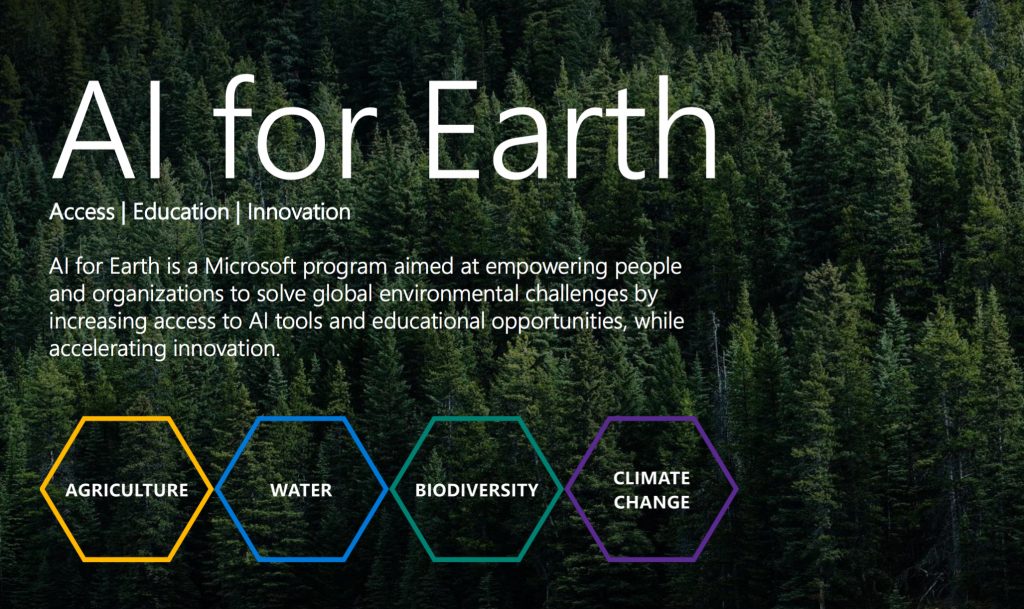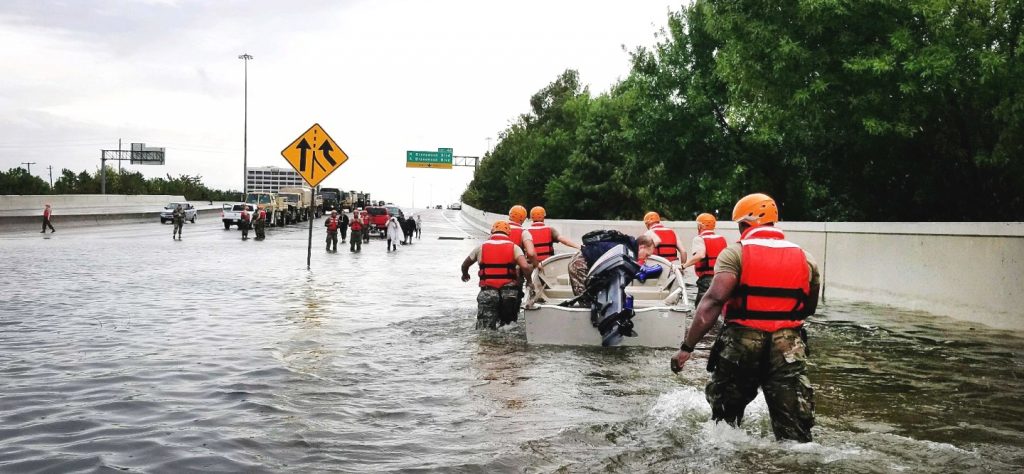Microsoft AI for Earth Grant
A team led by URP doctoral candidate Wei Zhai and Professor Zhong-Ren Peng received a prestigious Microsoft grant to understand human mobility during extreme weather events.
AI for Earth is a global US$50 million Microsoft research grant program aimed at “tackling some of the world’s most intractable problems by marshaling the immense power of AI, machine learning (ML), and the cloud.” Image source: Microsoft.
October 29, 2020

URP doctoral candidate Wei Zhai and Dr. Zhong-Ren Peng, together with Ph.D. students Hongming Li and Mengdi Zhu from the UF Department of Electrical and Computer Engineering, won an AI for Earth Grant from Microsoft. AI for Earth awards grants internationally to support projects that use AI to change the way people and organizations monitor, model, and manage Earth’s natural systems.

The grant project will automatically uncover the major weather-related features that impact human mobility during extreme weather events (EWEs) in big cities by mining mobile phone data and weather data. In addition, the project also aims to build an effective model to predict human mobility during EWEs using the AI-based approach, such as the Sequential Deep Learning models.

This project would not only benefit existing scholarship, but also the work of thousands of practitioners that are monitoring and responding to the emergency evacuation, traffic congestion, disaster response, and long-term impacts during EWEs. The project will develop a real-time online platform to predict the people’s mobility patterns given the real-time input of extreme weather data for America’s big cities. The research team will work with university research institutions, NGOs, and communities to build a real-time monitoring system. The team will disseminate the results to all big cities (e.g., New York City, Los Angeles) and local disaster management agencies (e.g., Florida Division of Emergency Management), which will help decision-makers and emergency respondents to make real-time decisions and immediate adaptation strategies during EWEs.